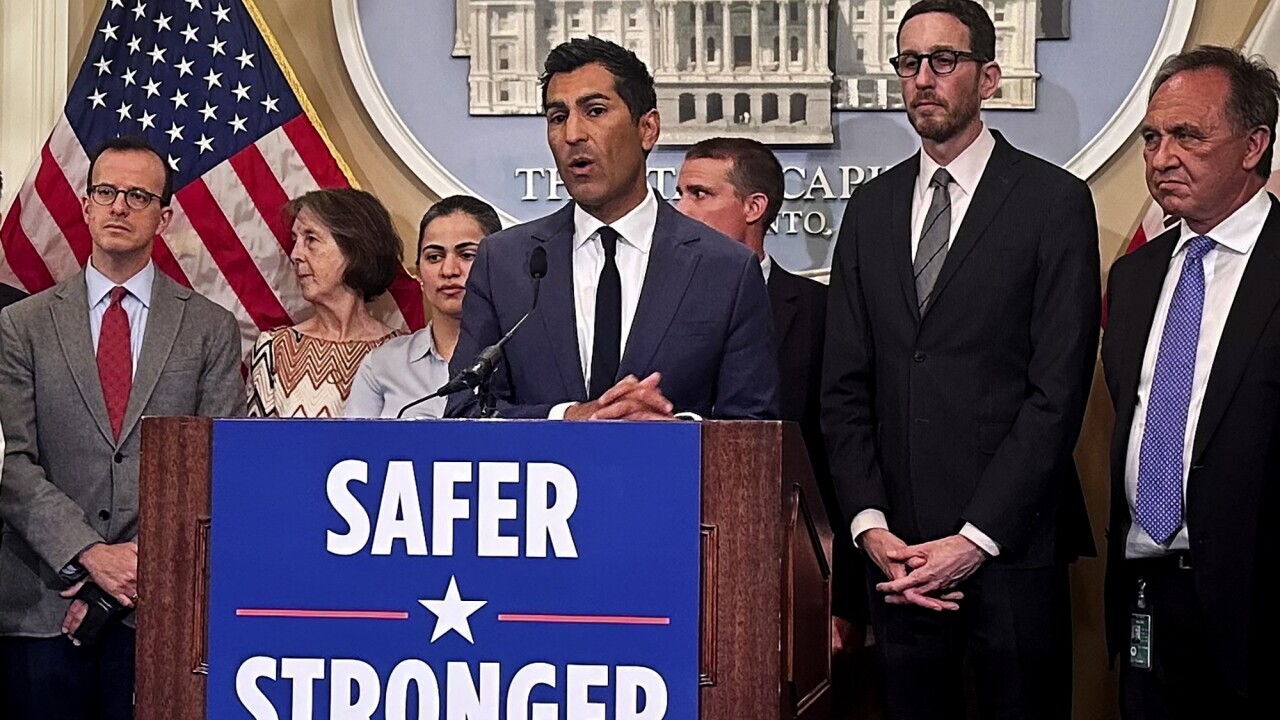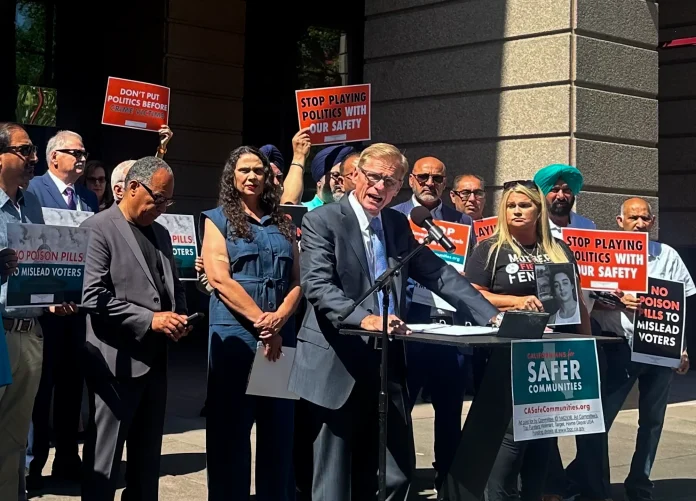Retail theft is on the rise in California, leading to a political clash between Democratic leaders and a coalition of law enforcement and business groups. The core of the disagreement lies in how to effectively address the issue without increasing incarceration rates.
Democrats aim to uphold progressive policies and avoid harsher penalties, while the coalition advocates for stricter measures to curb theft. Two main proposals are under consideration: a ballot initiative pushing for severe penalties for repeat offenders and a legislative package targeting professional crime rings.
The ballot initiative, backed by district attorneys and major retailers, proposes harsher penalties, including making any theft a felony for those with prior convictions and making fentanyl possession a felony.
In contrast, Democratic leaders, supported by Governor Gavin Newsom, are pushing for a series of bills that focus on organized crime and provide resources for drug addiction treatment.
They argue that the ballot measure would unfairly impact low-income individuals and those with substance abuse issues rather than targeting the masterminds behind organized theft.

The political battle centers around Proposition 47, a 2014 measure that reclassified certain thefts and drug possession offenses as misdemeanors to reduce prison overcrowding. Critics claim it has hindered efforts to combat shoplifting, while research indicates no link to increased violent crime.
As the debate intensifies, both sides accuse each other of misleading voters and obstructing compromise. The coalition insists on rolling back Proposition 47, while Democrats aim to avoid mass incarceration.
The potential conflict between the two approaches is significant. If the ballot initiative passes, it could nullify many provisions in the legislative package. Lawmakers fear that the combination of both measures could lead to stacking penalties and exacerbating jail overcrowding.
About a third of the legislative proposals might legally conflict with the ballot initiative, raising concerns about their compatibility. Supporters of the ballot measure argue that both efforts can coexist, with the initiative taking precedence in case of legal issues.
Negotiations are ongoing, with a deadline of June 27 for Democratic leaders to possibly negotiate the initiative off the ballot. Meanwhile, the legislative package is being expedited to reach the governor’s desk.
Moderate Democrats express concerns, but proponents emphasize the comprehensive nature of their proposals, aimed at reforming existing laws rather than merely adding punitive measures. The outcome of these efforts will shape California’s approach to addressing retail theft and balancing progressive reforms with effective law enforcement.


